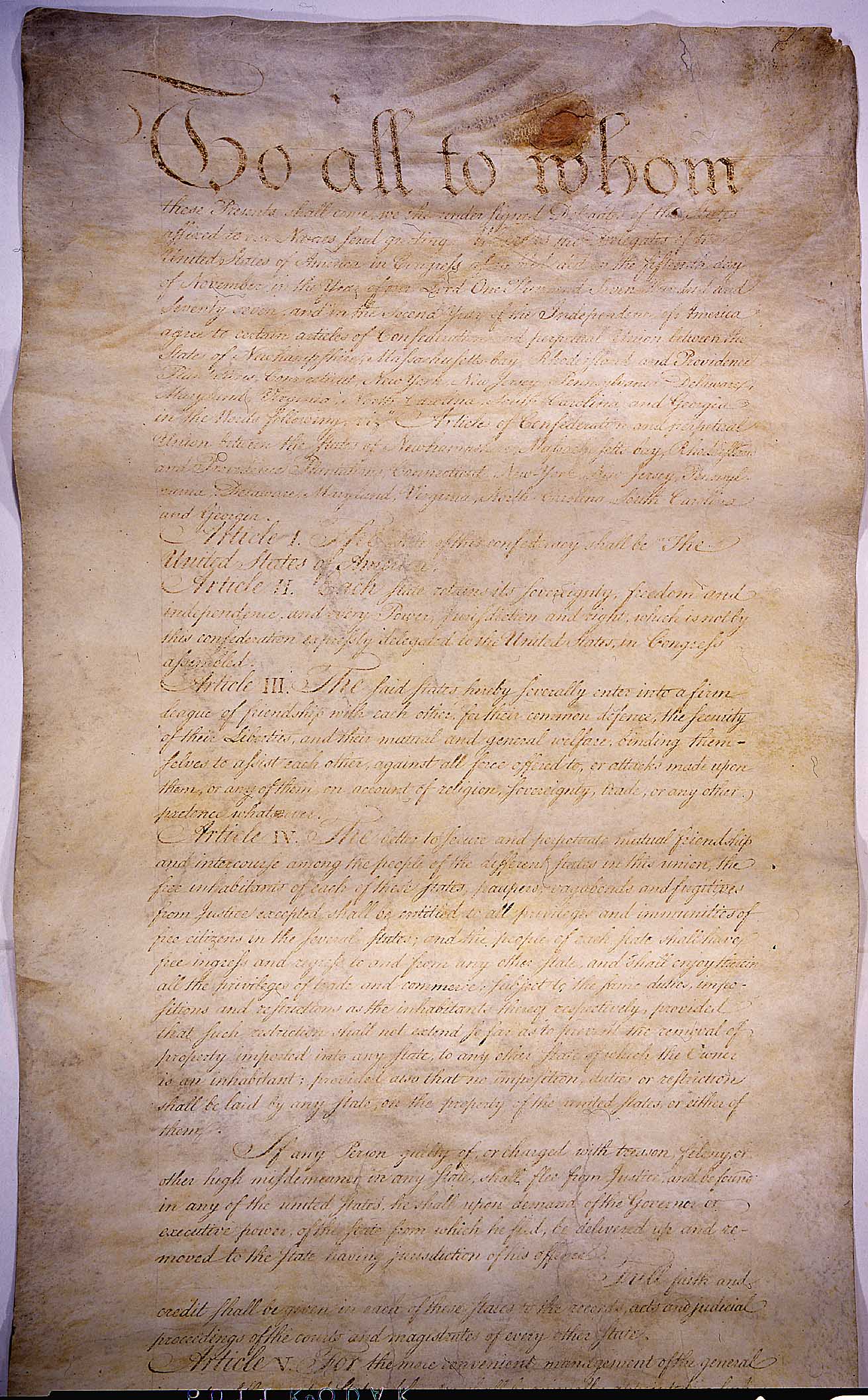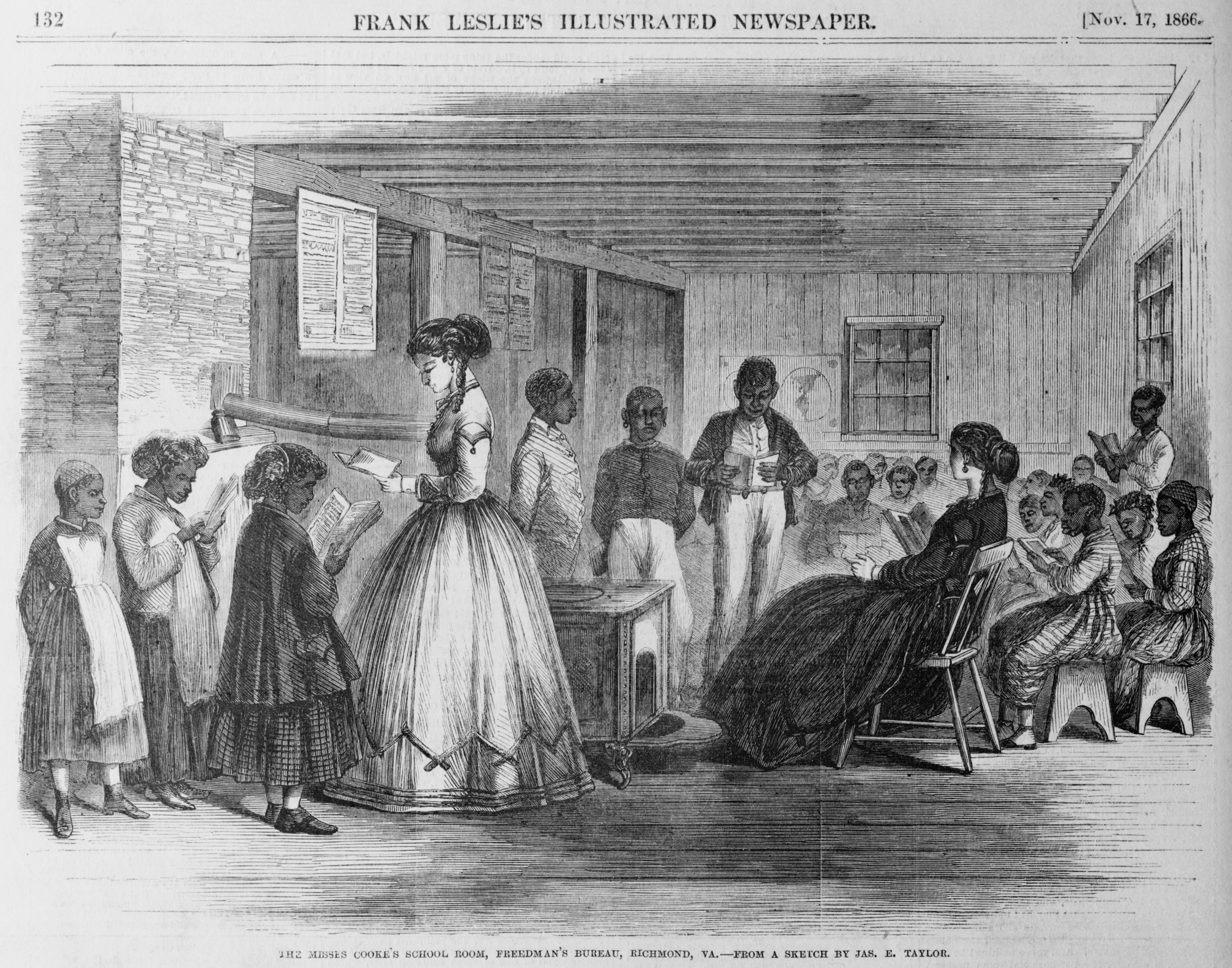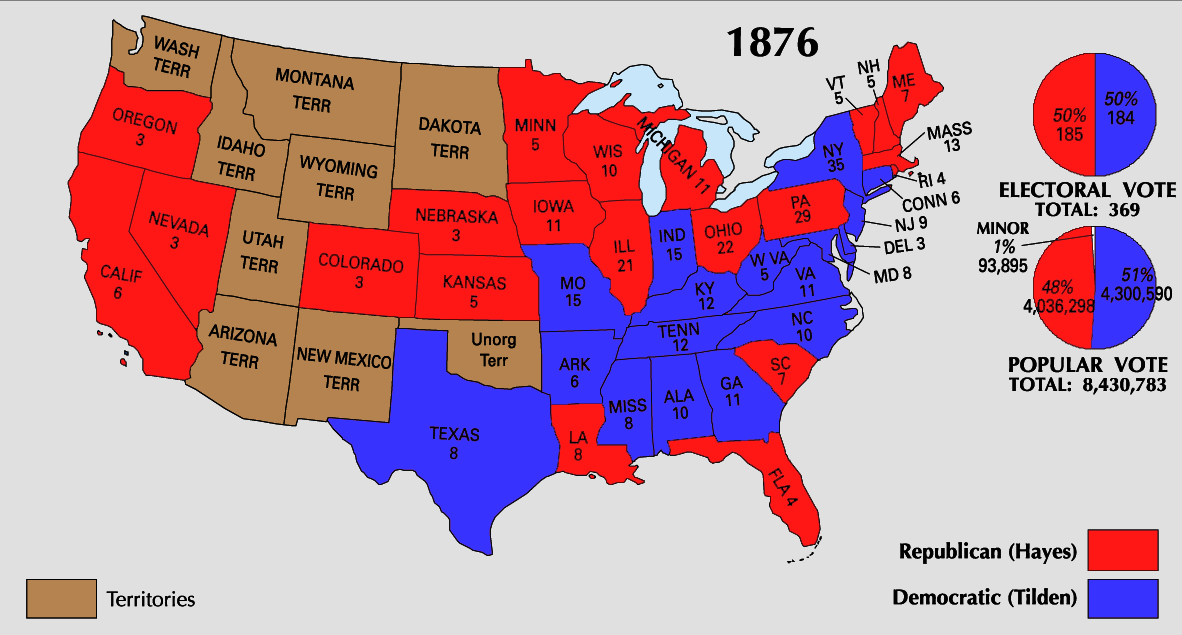Politics were centered towards the reconstruction issue in the Union. The Radical Republicans and President Lincoln played a big role in reshaping and mending the Union. Continue reading to learn more!
Photo Gallery
Emerging Parties Leading up to the Conflict
The Republican Party nominated President Lincoln as their candidate in the election of 1860. It was founded in 1854 by anti-slavery activists. The new party's main enemy was the Southern Democratic Party, which favored slavery. The reason for its emergence was the Kansas-Nebraska Act which allowed slavery in the new territories and repealed the Missouri Compromise. Most Republicans were made up to former Whigs, ex-Democrats, and Liberty Party members. They had issues concerning slavery. However, they were strongly favored towards the radical and conservative components of the party, like preserving the Union if their was further conflict between the North and South. Also, during the election of 1860 the old Democratic Party broke into two separate parties, the Northern Democrats supported Stephen Douglas's plan of letting the issue of slavery be decided by "Popular Sovereignty," whereas the Southern Democrats, chose John Breckinridge and wanted slavery to remain throughout all Western territories. Another party that was founded in 1850 was the Constitutional Union Party, who chose John Bell as their candidate; they strictly supported the Constitution and took no side in the issues that divided the north and south. Yet after the 1860 election this party disappeared some of its members joined the Confederacy and others the Union.
| GOP Republican Party .Photograph.n.d. This Day in History: July 6th Twisted Sifter.Web. 03 Jan.14. |
Conscription in the Union and Confederacy
Before the Civil War military drafts were not required in the United States. When the Confederacy passed its first three acts of conscription in April 16, 1862, they became widespread and later the Union began drafting men into the military as well. The acts stated that white males between the ages of 18-35 were titled to serve in the military for a course of three years and the term of current soldiers was extended to three extra years. However the wealthy men could hire a substitute or offer 300 dollars to get exempt from fighting in the war. Yet, in 1863 Congress passed the official Enrollment Act, which stated that all men between ages of 20-45 were entitled to serve in the military, wealthy men would serve as volunteers or inductees. However an earlier conscription act passed by the Confederate in April 1862 exempted men who worked in medical professions, national and state governments, heavy industry and mining, communication and transportation businesses, and other occupations that helped the public like teachers, ministers, and druggists. The Enrollment Act of 1863 began riots in New York because only six percent of the men were drafted into the military. Later the military draft age was raised to 45 and as more troops were needed men from the ages of 17-50 started to be drafted into the military.
 |
| Military Conscription.Photograph.n.d. Military Draft/Conscription The History Guy. Web.03 Jan.14. |
Copperheads ( "Peace Democrats")
They were democrats of the midwest, dominantly in Illinois, Indiana, and Ohio, who opposed the Republican Party and emancipation of slaves as well as conscription. Families of the agrarian region were more in support of the Copperheads. They wanted immediate peace with the Confederacy and opposed the American Civil War. The Republicans gave them the title of Copperheads in 1861, connecting them to venomous snakes, but they interpreted the name as liberty on the copper penny and accepted the name in 1863. They felt that a war on the issue of slavery was unconstitutional. Also, they were in opposition of Lincoln's war effort claiming that it was unconstitutional as well as laws that were being established during Lincoln's presidency. Along with their southern allies, they believed in "White Men Supremacy." In fact they created the Knight's of the Golden Circle" group in 1862 which was accused of treasonable activities. The Copperheads mostly wanted to defeat the Republicans and keep the existence of the Democratic Party.
Want to learn more!! Copperheads
Want to learn more!! Copperheads
 |
| Copperheads.Photograph.n.d.The Copperhead Party Civil War 150 Ohio.Web. 03 Jan. 14. |
Lincoln's Leadership
As a president Lincoln wanted to fulfill his duty and that was to preserve the Union at all costs; if that meant fighting he was up for it. The Bombardment of Fort Sumter leaned the issue of secession and slavery to be resolved by war. The nation was split into two during 1861-1865, the Union and the Confederacy. However, through Lincoln's determination and leadership the Union won the Civil War. Although Lincoln had little experience in the military, he was held as the Commander-in-Chief. As the boss of the Union military, he tested himself by assessing generals, seeing how good or bad they were. Also, he sent out orders by telegraph and shared different war tactics with his troops. As a president he was able to order for a southern naval blockade, which would eventually collapse the Confederate economy. Also, he passed the Emancipation Proclamation freeing slaves in the rebellious states of the south. Without slavery, the Confederacy wouldn't be able to survive as well. Through Lincoln's ways the Confederacy was slowly beginning to disappear and so was slavery. As president he preferred to react to the problems and circumstances that others had created, rather than originate policies. Therefore he wanted to save the nation from splitting apart. He said, "My policy is to have no policy. The greatest leadership trait he is remembered for having was telling stories that demonstrated his point when cabinet members would disagree with him. Overall he was a great leader and saved the nation from falling apart.
More on Leadership Qualities
What?
More on Leadership Qualities
 |
| Lincoln's Inaugural Address.Photograph.n.d.Abraham Lincoln's First Inaugural Address Wikipedia.Web.03 Jan.14. |
Emancipation Proclamation
 |
| Emancipation Proclamation.Photograph.Emancipation Proclamation Wikipedia.Web. 03 Jan. 14. |
- Issued by President Abraham Lincoln in January 1, 1863
- Freed slaves in the Confederate States only
- Allowed for African American men to serve in the Union Military
- Freedom granted depended on Union Military victory
- Captured the hearts of many Americans even though it did not end slavery
- Insisted that the war for the Union was to become a war for freedom
- Issued 5 days later after the Battle of Antietam, Union victory
- Helped prevent foreign nation involvements
- It led the way to total abolition of slavery in the U.S.
Scalawags
Who?
- Any Southerner who supported the Federal plan of Reconstruction after the Civil War
- Joined with Black Freedmen or Republican policies
- Deep South: former Whigs of planter-merchant upper class men
- Upper South: hill-county farmers who favored the Union
- Earned name from southern democrats, referred to as a traitor
 |
| Reconstruction Era.Photograph.n.d.Scalawags and Carpetbaggers Web.03 Jan. 14. |
- Some wanted a new south slavery free
- Others served in the Republican governments for money
Carpetbaggers
Who?
- Northerners who went South during Reconstruction
What?
- motivated by profit or idealism
- name came from cloth bags many used in transforming their possessions
- interested in aiding the freedom and education of former slaves
Freedmen's Bureau
The bureau aided thousands of former slaves or freedmen and impoverish white men of the Southern states and the District of Columbia. The Civil War had liberated up to four million slaves,but it also had destroyed southern cities, towns, and plantations, that based the region's economy. The war left many former slaves and white men dislocated from their homes, with starvation and the only clothes they wore. Former slaves had a challenge because their was no racial equality between the whites and blacks. The Bureau was established in the War Department in 1865 and its purpose was to help freed people get their full civil rights and gain citizenship. The Freedmen's Bureau was a secret organization and it distributed food and clothing, operated temporary hospitals and camps, legalized marriages, located family members, furthered education, provided employment, investigated racial confrontations, and many other duties that helped freedmen feel in a better place in the society.
Freedmen's Bureau Video
 |
| Freedmen's Bureau School.Photograph.n.d.Freedmen Bureau Education Wikipedia.Web.03 Jan.14. |
It is a PowerPoint slide with background music, which shows and has written some contributions of the Freedmen's Bureau. The Bureau was headed by a Union Army General, Oliver O. Howard. It aided the new freedmen in seeking liberty and progressing their education. The purpose of the Bureau was to get a diversified community between the whites and the blacks. Of course not all whites were interested, but some definitely were and they took part in the Freedmen's Bureau. The Bureau helped the African Americans with communication skills, food, clothing, and other necessities as well. These are only some facts that the video taught me, click on it to learn more.
Ten Percent Plan(Proclamation of Amnesty and Reconstruction)
The plan was Lincoln's reconstruction plan. It required only ten percent of a Confederate States voters, who participated in the 1860 election to pledge an oath before the state could begin to readmit into the Union and form their own state governments. Also it meant that they would have to agree on the permanent freedom of slaves. It excluded the Confederacy government officials and army officials. It was established in December 1863, after the Gettysburg and Vicksburg, Union victories. The plan's purpose was to ask for forgiveness and rejoin the Union.
"35. Reconstruction." Reconstruction [ushistory.org]. 04 Jan. 2014 <http://www.ushistory.org/us/35.asp>.
"Carpetbaggers and Scalawags." Boundless. 03 Jan. 2014 <https://www.boundless.com/u-s-history/reconstruction-1865-1877/the-reconstructed-south/carpetbaggers-and-scalawags/>.
"Civil War Conscription Laws." In Custodia Legis Law Librarians of Congress. 03 Jan. 2014 <http://blogs.loc.gov/law/2012/11/civil-war-conscription-laws/>.
"Congress passes Civil War conscription act." History.com. A&E Television Networks. 03 Jan. 2014 <http://www.history.com/this-day-in-history/congress-passes-civil-war-conscription-act>.
"Conscription in the United States." Wikipedia. 18 Dec. 2013. Wikimedia Foundation. 03 Jan. 2014 <http://en.wikipedia.org/wiki/Conscription_in_the_United_States>.
"Conscription (Military Draft) In The Civil War." Conscription (Military Draft) In The Civil War. 03 Jan. 2014 <http://www.civilwarhome.com/conscription.htm>.
"Copperhead (American political faction)." Encyclopedia Britannica Online. Encyclopedia Britannica. 03 Jan. 2014 <http://www.britannica.com/EBchecked/topic/136836/Copperhead>.
"The Election of 1860." The Election of 1860. 03 Jan. 2014 <http://www.tulane.edu/~latner/Background/BackgroundElection.html>.
"The Freedmen's Bureau, 1865-1872." African American Records: Freedmen's Bureau. 04 Jan. 2014 <http://www.archives.gov/research/african-americans/freedmens-bureau/>.
"History of the United States Democratic Party." Wikipedia. 01 Jan. 2014. Wikimedia Foundation. 03 Jan. 2014 <http://en.wikipedia.org/wiki/History_of_the_United_States_Democratic_Party>.
"Home." Our Documents -. 02 Jan. 2014 <http://www.ourdocuments.gov/doc.php?flash=true>.
Infoplease. Infoplease. 04 Jan. 2014 <http://www.infoplease.com/encyclopedia/history/tenure-office-act.html>.
"Leadership in war." Encyclopedia Britannica Online. Encyclopedia Britannica. 03 Jan. 2014 <http://www.britannica.com/EBchecked/topic/341682/Abraham-Lincoln/8729/Leadership-in-war>.
Leverkuhn, A., and Andrew Jones. WiseGeek. 01 Apr. 2014. Conjecture. 03 Jan. 2014 <http://www.wisegeek.com/what-is-the-constitutional-union-party.htm>.
"Lincoln's Critics: The Copperheads." Lincoln's Critics: The Copperheads. 03 Jan. 2014 <http://quod.lib.umich.edu/j/jala/2629860.0032.105/--lincoln-s-critics-the-copperheads?rgn=main;view=fulltext>.
PBS. PBS. 03 Jan. 2014 <http://www.pbs.org/wnet/jimcrow/stories_org_democratic.html>.
"Reconstruction Acts of 1867-1868." Reconstruction Acts of 1867-1868. 04 Jan. 2014 <http://www.u-s-history.com/pages/h417.html>.
"Scalawags and Carpetbaggers." Scalawags and Carpetbaggers. 03 Jan. 2014 <http://www.u-s-history.com/pages/h240.html>.
"Tenure of Office Act (United States [1867])." Encyclopedia Britannica Online. Encyclopedia Britannica. 04 Jan. 2014 <http://www.britannica.com/EBchecked/topic/587631/Tenure-of-Office-Act>.
"Thirteenth Amendment." History.com. A&E Television Networks. 04 Jan. 2014 <http://www.history.com/topics/thirteenth-amendment>.
"U.S. Senate: Art & History Home Landmark Legislation: The Civil War and Reconstruction Amendments to the Constitution." U.S. Senate: Art & History Home Landmark Legislation: The Civil War and Reconstruction Amendments to the Constitution. 04 Jan. 2014 <http://www.senate.gov/artandhistory/history/common/generic/CivilWarAmendments.htm>.
"What is the 14th amendment in simple terms?" WikiAnswers. Answers. 04 Jan. 2014 <http://wiki.answers.com/Q/What_is_the_14th_amendment_in_simple_terms>.
"What is the reconstruction act of 1867?" WikiAnswers. Answers. 04 Jan. 2014 <http://wiki.answers.com/Q/What_is_the_reconstruction_act_of_1867>.
Video:
Bonner, Aiyanna. The Freedmen's Bureau APUSH Mrs, Stanely. N.p.: n.p., 12 Sept. 12. PPT.
13th, 14th, and 15th Amendments
13th Amendment: It was ratified in December 6, 1865 and passed by Congress in January 31, 1865. Majority wanted the abolishment of slavery, the vote results being 119 to 56. Slavery was abolished in the United States. Along with slavery, involuntary servitude was eradicated, unless for punishment of crime purposes. Initially it was successfully passed through the Senate on April 8,1864, which was dominated by Republicans. However it died in the House of Representatives because Democrats argued over states' rights.
primary source: http://www.ourdocuments.gov/doc.php?doc=40
This is a good source because it explains the 13th Amendment and its impact. Also it provides a document of the amendment. I found the website really helpful in understanding the amendment better. I learned that this amendment was not ratified right away because the Democrats in the House of Representatives disagreed while the Republicans agreed. However later majority of the house won and the bill became a law.
This is a good source because it explains the 13th Amendment and its impact. Also it provides a document of the amendment. I found the website really helpful in understanding the amendment better. I learned that this amendment was not ratified right away because the Democrats in the House of Representatives disagreed while the Republicans agreed. However later majority of the house won and the bill became a law.
14th Amendment: It was ratified in January 9, 1868, after the Civil Rights Act was passed in 1866. The amendment granted citizenship to all people born in the United Sates, including former slaves and granted all citizens "equal protection under the laws,'' and the Bill of Rights was applied to states. States were not allowed to pass laws against race. It prohibited states form depriving people of life, liberty, and property without subject to law.
15th Amendment: William Stewart, as a member of the Senate Committee on the Judiciary of Nevada, introduced this amendment to the Senate and it was ratified in February 3, 1870. The amendment banned states from disenfranchising voters regarding of race, color, or previous condition of servitude. However states could establish voter qualifications that were equal to all races. Many former confederate states took advantage of this bill by instituting poll taxes and literacy tests for voters.
Tenure of Office Act
The act was passed over the veto of President Andrew Jackson on March 2, 1867 by Radical Republicans. The act stated that all federal officials who were in the Senate could not be removed by the president without consent from the Senate. Also it claimed that members in the cabinet should hold office for the full of the president who appointed them and one month later be subjected to removal by the Senate. The act was imposed towards President Johnson for removing Secretary of War, Edwin Stanton from office. Later, this act led to the president's impeachment.
Military Reconstruction Act
The act was passed by the Radical Republicans in 1867. It divided the former confederate states into five military districts, not including Tennessee and justified how the new governments would be designed. Under federal terms, freedmen, former slaves had the right to vote, hold political offices, and become judges and police chiefs. States were required to ratify the fourteenth amendment before readmission. Also, state constitutional conventions of elected members were to draft new governing documents allowing black men suffrage. The states would have military leaders of the North. The southerners would have to rid black codes. It banned confederate leaders from voting or any who didn't pledge their loyalty to the U.S.
Compromise of 1877
It was issued following the presidential election of 1876. In exchange of Rutherford B. Hayes being elected president, the Republicans agreed with Southern Democrats to remove federal troops which had been occupying the South since the end of the Civil War, as well as fix other concerns. The agreement was informal and unwritten and ended the reconstruction era. Some other conditions that the Republicans agreed with were, enacting federal legislation that would cause industrialization in the South, appointing Democrats to support the South, and to appoint Democrats to the president's cabinet. However, this agreement caused harm to the 400 million freed slaves in the South. The Civil's Right Act was completely abandoned and their was no restoration of Civil Rights for black men till the 1950s.
 |
| Election of 1876.Photograph.n.d.Electoral Commision Wikipedia.Web.03 Jan.14. |
Works Cited
"35. Reconstruction." Reconstruction [ushistory.org]. 04 Jan. 2014 <http://www.ushistory.org/us/35.asp>.
"Carpetbaggers and Scalawags." Boundless. 03 Jan. 2014 <https://www.boundless.com/u-s-history/reconstruction-1865-1877/the-reconstructed-south/carpetbaggers-and-scalawags/>.
"Civil War Conscription Laws." In Custodia Legis Law Librarians of Congress. 03 Jan. 2014 <http://blogs.loc.gov/law/2012/11/civil-war-conscription-laws/>.
"Congress passes Civil War conscription act." History.com. A&E Television Networks. 03 Jan. 2014 <http://www.history.com/this-day-in-history/congress-passes-civil-war-conscription-act>.
"Conscription in the United States." Wikipedia. 18 Dec. 2013. Wikimedia Foundation. 03 Jan. 2014 <http://en.wikipedia.org/wiki/Conscription_in_the_United_States>.
"Conscription (Military Draft) In The Civil War." Conscription (Military Draft) In The Civil War. 03 Jan. 2014 <http://www.civilwarhome.com/conscription.htm>.
"Copperhead (American political faction)." Encyclopedia Britannica Online. Encyclopedia Britannica. 03 Jan. 2014 <http://www.britannica.com/EBchecked/topic/136836/Copperhead>.
"The Election of 1860." The Election of 1860. 03 Jan. 2014 <http://www.tulane.edu/~latner/Background/BackgroundElection.html>.
"The Freedmen's Bureau, 1865-1872." African American Records: Freedmen's Bureau. 04 Jan. 2014 <http://www.archives.gov/research/african-americans/freedmens-bureau/>.
"History of the United States Democratic Party." Wikipedia. 01 Jan. 2014. Wikimedia Foundation. 03 Jan. 2014 <http://en.wikipedia.org/wiki/History_of_the_United_States_Democratic_Party>.
"Home." Our Documents -. 02 Jan. 2014 <http://www.ourdocuments.gov/doc.php?flash=true>.
Infoplease. Infoplease. 04 Jan. 2014 <http://www.infoplease.com/encyclopedia/history/tenure-office-act.html>.
"Leadership in war." Encyclopedia Britannica Online. Encyclopedia Britannica. 03 Jan. 2014 <http://www.britannica.com/EBchecked/topic/341682/Abraham-Lincoln/8729/Leadership-in-war>.
Leverkuhn, A., and Andrew Jones. WiseGeek. 01 Apr. 2014. Conjecture. 03 Jan. 2014 <http://www.wisegeek.com/what-is-the-constitutional-union-party.htm>.
"Lincoln's Critics: The Copperheads." Lincoln's Critics: The Copperheads. 03 Jan. 2014 <http://quod.lib.umich.edu/j/jala/2629860.0032.105/--lincoln-s-critics-the-copperheads?rgn=main;view=fulltext>.
PBS. PBS. 03 Jan. 2014 <http://www.pbs.org/wnet/jimcrow/stories_org_democratic.html>.
"Reconstruction Acts of 1867-1868." Reconstruction Acts of 1867-1868. 04 Jan. 2014 <http://www.u-s-history.com/pages/h417.html>.
"Scalawags and Carpetbaggers." Scalawags and Carpetbaggers. 03 Jan. 2014 <http://www.u-s-history.com/pages/h240.html>.
"Tenure of Office Act (United States [1867])." Encyclopedia Britannica Online. Encyclopedia Britannica. 04 Jan. 2014 <http://www.britannica.com/EBchecked/topic/587631/Tenure-of-Office-Act>.
"Thirteenth Amendment." History.com. A&E Television Networks. 04 Jan. 2014 <http://www.history.com/topics/thirteenth-amendment>.
"U.S. Senate: Art & History Home Landmark Legislation: The Civil War and Reconstruction Amendments to the Constitution." U.S. Senate: Art & History Home Landmark Legislation: The Civil War and Reconstruction Amendments to the Constitution. 04 Jan. 2014 <http://www.senate.gov/artandhistory/history/common/generic/CivilWarAmendments.htm>.
"What is the 14th amendment in simple terms?" WikiAnswers. Answers. 04 Jan. 2014 <http://wiki.answers.com/Q/What_is_the_14th_amendment_in_simple_terms>.
"What is the reconstruction act of 1867?" WikiAnswers. Answers. 04 Jan. 2014 <http://wiki.answers.com/Q/What_is_the_reconstruction_act_of_1867>.
Video:
Bonner, Aiyanna. The Freedmen's Bureau APUSH Mrs, Stanely. N.p.: n.p., 12 Sept. 12. PPT.
No comments:
Post a Comment